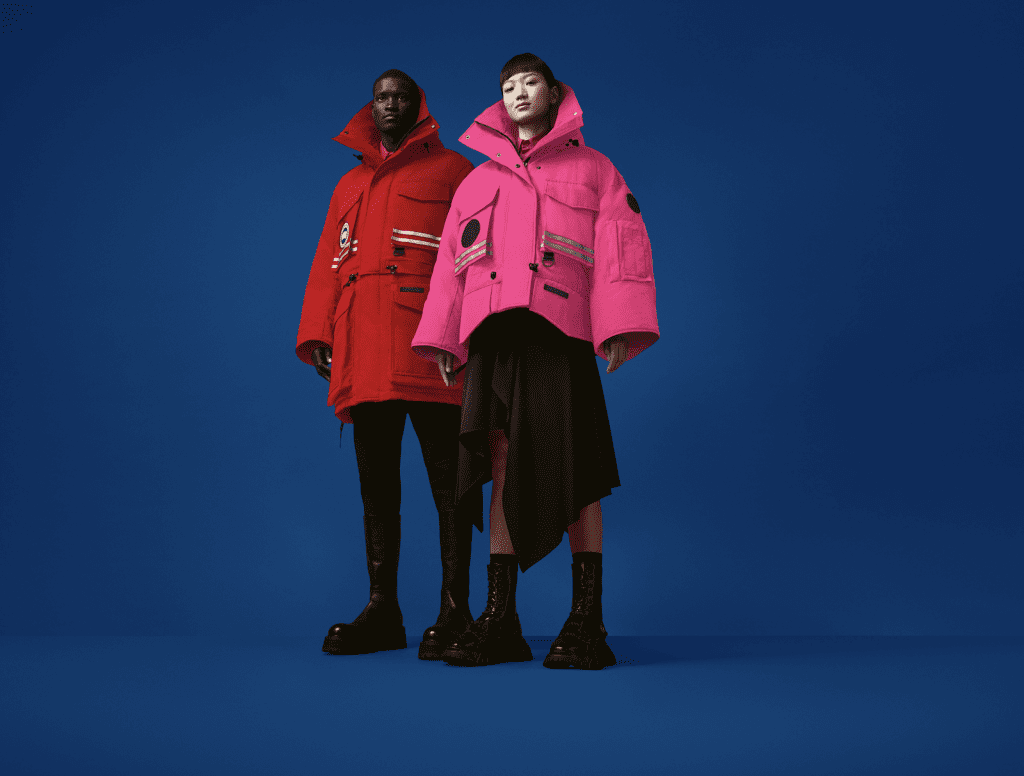Canada Goose is coming under fire in China in connection with marketing claims that its buzzy down coats are made from “the warmest material from Hutterite.” According to China’s National Enterprise Credit Information Publicity System, by asserting that its coats consist of down feathers sourced from Hutterites communities in North America when “most of its products are actually made with other materials,” Canada Goose ran afoul of Chinese advertising law, which prohibits advertisements that contain “any false or misleading content or [that] defraud or mislead consumers,” thereby, resulting in a 450,000 ($71,000) fine for the Toronto-based jacket-maker.
Not the first time that Canada Goose has been on the recovering end of advertising-specific scrutiny, the company was named in a false advertising lawsuit, in which it is accused of misleading consumers about the nature of the trapping methods used to source the fur for its buzzy jackets by claiming that it is dedicated to “the ethical, responsible, and sustainable sourcing and use of real fur.”
According to the proposed class action complaint that was filed in a New York federal court in November 2020, lead plaintiff George Lee claims that when he purchased a fur-trimmed parka from Canada Goose in 2017, he relied on Canada Goose’s representations that the fur was sourced using ethical and humane trapping methods, only to learn that “Canada Goose’s suppliers use cruel methods that cause strangulation and broken bones to coyotes and other animals who are inadvertently trapped and discarded.”
In a decision in July, Judge Victor Marrero of the U.S. District Court for the Southern District of New York refused to dismiss Lee’s DC Consumer Protection Procedures Act claim with respect to Canada Goose’s statement that it is committed to “ethical, responsible, and sustainable sourcing,” holding that Lee has “plausibly alleged that this statement has the tendency to mislead a reasonable consumer.” Specifically, the court held that Canada Goose’s statement may be misleading because it “obtains fur from trappers who use allegedly inhumane leghold traps and snares,” which Lee alleges “is widely considered inhumane by industry professionals.”
THE BROAD VIEW: The crackdown on Canada Goose’s advertising, as first reported by Bloomberg, comes amid an enduring rise in – and regulator attention to – misleading and/or fraudulent ads in China that has followed from the enactment of a stricter advertising law, which went into force in September 2015. The amendments overhauled the existing advertising legislation to make, what experts have said, more kinds of advertisements vulnerable to be scrutinized for false advertisement and established a higher burden for substantiating truthfulness of all claims and statements by advertisers.
Among the provisions that amended China’s advertising law is a ban on the use of superlatives in advertisements. Article 9(3) of the Advertising Law strictly prohibits the use of superlatives, including – but not limited to – “national,” “highest,” and “best.” Hogan Lovells’ Eugene Low and Angele Lok note that the ad law does not provide an exhaustive list of prohibited superlatives. However, regulator guidance and case law have provided some clarity in finding that the use of a number of other superlative terms, such as “world-class,” “supreme,” and “No. 1,” violates the provision.
The National Enterprise Credit Information Publicity System did not make mention of Canada Goose’s use of “warmest” in its marketing messaging, which suggests that the term does not necessarily run afoul of the national advertising law, assuming that it can be verified by the advertising party. Here, the primary issue stemmed from the fact that Canada Goose advertised that its jackets are made of certain type of down when that was not true for all of its offerings.











